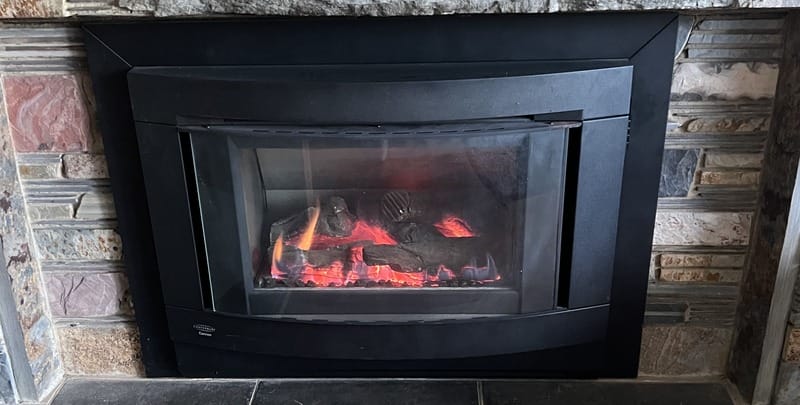
Flued vs Unflued Gas Heaters: Pros and Cons
Choosing the right gas heater is crucial for maintaining a comfortable and safe home environment, especially during the cooler months in Australia. Among the various options available, flued and unflued gas heaters stand out due to their energy efficiency and popularity.
In this article, we will explore the differences between flued and unflued gas heaters, outlining their respective advantages and disadvantages. Understanding these key points will help you make an informed decision on the best heating solution for your home.
Exploring Gas Flued Heaters
Flued gas heaters are designed to vent combustion gases outside the home through a flue or chimney. This feature ensures that harmful exhaust gases like carbon monoxide do not circulate within the living space, enhancing the safety of the household.
These heaters are typically fixed installations, requiring professional setup to ensure proper ventilation and efficiency through the flued gas heater pipe.
Pros of Flued Gas Heaters
Flued gas heaters bring several benefits to your home, making them a popular choice for efficient and responsible heating.
Here’s why you might consider opting for one:
- Improved air quality: Flued heaters vent out all combustion gases to the outside, which significantly improves the indoor air quality of your home. This makes them a safer option, particularly for households with children, elderly, or those with respiratory issues.
- Consistent heating: These heaters provide steady, consistent heat. Unlike unflued heaters, they don’t experience the same level of heat fluctuation, ensuring a comfortable environment throughout their use.
- Energy efficiency: Many flued gas heaters are designed to be highly efficient, using less energy compared to other heating methods. This can lead to lower utility bills, especially during the colder months.
- Less humidity and odour: Since flued heaters expel exhaust gases outside, they don’t increase the humidity levels inside your home. This reduces issues like mould and mildew and avoids the lingering odour that can come with unflued heating options.
These advantages make flued gas heaters a dependable and health-conscious choice for heating your space.

Cons of Flued Gas Heaters
While flued gas heaters have several benefits, they also come with some drawbacks that are worth considering before making a purchase:
- Installation complexity: Flued heaters require a more complex installation process, as they need a venting system to expel gases outside. This can make the initial setup more costly and time-consuming compared to unflued options.
- Limited placement options: Because they must be connected to a flue that vents outdoors, these heaters often have fewer placement options within a home. This can limit your flexibility in designing and arranging your living space.
- Higher initial cost: The cost of purchasing and installing a flued gas heater is generally higher than that of an unflued model. This includes the expense of the heater itself and the installation of proper venting infrastructure.
- Maintenance requirements: Flued heaters may require more regular maintenance to ensure that the venting systems are functioning properly and safely. This could mean additional costs and scheduling regular professional inspections.
Considering these factors is crucial as they can impact the overall convenience and cost-effectiveness of a flued gas heater in your home.
A Closer Look at Unflued Gas Heaters
Unflued gas heaters, also known as ventless or portable gas heaters, operate without the need for a flue to vent combustion gases outside.
This makes them highly portable and easy to install, as they do not require any complex setup or permanent installation.
These heaters burn gas and release the combustion products directly into the room, providing immediate and efficient warmth. They often connect to a gas outlet or use bottled gas.
Pros of Unflued Gas Heaters
Unflued gas heaters offer some distinct advantages that make them appealing for certain living situations. Here’s why they might be the right choice for you:
- Portability and flexibility: One of the biggest advantages of unflued gas heaters is their portability. These heaters can be moved from room to room as needed, providing flexibility in heating different areas of your home without additional installations.
- Lower initial cost: Compared to flued models, unflued gas heaters generally have a lower upfront cost. This makes them a more affordable option for those on a tight budget or who don’t want to invest in permanent installation.
- Easy installation: With no need for a flue or venting system, unflued heaters are incredibly easy to install. You can virtually take them out of the box and start using them right away, making them ideal for quick heating solutions.
- Effective for small spaces: Unflued heaters are particularly effective in small spaces where concentrated heat is needed quickly. They can efficiently warm up a room, making them suitable for compact or well-insulated areas.
These benefits make unflued gas heaters a convenient and cost-effective choice for many homeowners.
Cons of Unflued Gas Heaters
Unflued gas heaters, while convenient in many ways, also come with several drawbacks that are important to consider:
- Indoor air quality concerns: One of the major downsides of unflued heaters is that they release combustion products directly into the indoor environment. This can lead to a build-up of pollutants like carbon monoxide, which might be harmful, especially in poorly ventilated spaces.
- Moisture and condensation: These heaters can significantly increase indoor humidity levels. This excess moisture can contribute to condensation on walls and windows, potentially causing mould growth and damage to your home interiors.
- Limited heating capacity: Unflued heaters are generally less powerful than flued options, making them less effective in heating larger or poorly insulated spaces. They are best used for smaller areas or supplemental heating.
- Odour and noise: Some unflued heaters may emit a noticeable odour or operate with a higher level of noise, which can be a nuisance for some users, particularly in quiet environments.
These factors are crucial to weigh if you’re considering an unflued gas heater, as they can affect comfort, health, and the overall usability of the heater in your living space.

Key Considerations for Choosing
Here are the three main factors to consider when choosing a gas heater for your needs.
- Safety: Safety is paramount when choosing between flued and unflued gas heaters. A flued gas heater, by venting combustion gases outside, reduces the risk of indoor air pollution, making it a safer option for households with children or individuals with respiratory conditions. In contrast, unflued heaters must be used in well-ventilated areas to mitigate potential health risks from indoor air pollutants.
- Cost: Cost considerations include both initial expenses and long-term maintenance. Flued gas heaters typically have higher upfront costs due to the need for professional installation and ongoing maintenance. Unflued gas heaters, while more affordable initially and easier to install, may incur higher long-term costs related to regular cleaning and ensuring safe operation.
- Home requirements: The size and layout of your home play a crucial role in this decision. Flued gas heaters are ideal for larger homes where permanent installations can efficiently heat multiple rooms. Unflued heaters, with their portability, suit smaller spaces or rental properties where flexibility is needed. Assess your home’s ventilation, size and specific heating needs to determine the most suitable option.
Select the Right Gas Heater for Your Home
Choosing between flued and unflued gas heaters depends on various factors, including safety, cost, and home requirements. Flued heaters offer better air quality and efficient heating for larger homes but come with higher installation costs. Unflued heaters are more affordable and portable but require good ventilation to ensure safety.
Assess your home’s specific needs and consult a professional to decide on the best gas heater for you. By carefully weighing the pros and cons of each option, you can ensure a warm and safe environment for your household during the colder months.
Please note: This information is provided for advice purposes only. Regulations differ from state to state, so please consult your local authorities or an industry professional before proceeding with any work. See Cyber Air Conditioning’s Terms & Conditions here.
